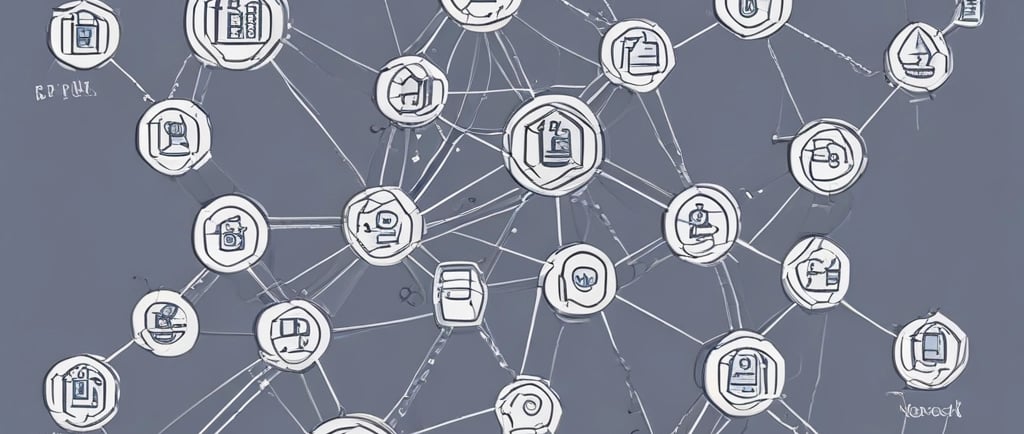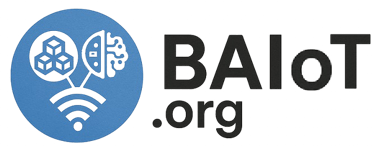Case Study Proposal: Decentralized Financial Reputation Networks for the Unbanked
BAIoT.org proposes Decentralized Financial Reputation Networks using Blockchain, AI, and IoT to empower the unbanked by transforming real-world behavior into portable, verifiable financial reputations—unlocking inclusive access to credit, insurance, and economic opportunity.
10/5/20254 min read


Case Study Proposal: Decentralized Financial Reputation Networks for the Unbanked
Reimagining Creditworthiness with Blockchain, AI, and IoT
Presented by BAIoT.org
Executive Summary
Over 1.4 billion adults globally remain unbanked, excluded from formal financial systems due to lack of documentation, credit history, or access to traditional banking infrastructure. This exclusion perpetuates poverty, limits entrepreneurship, and stifles economic mobility. Meanwhile, fintech innovation has largely focused on digitizing existing systems rather than rethinking them from the ground up.
This case study proposal introduces a disruptive initiative by BAIoT.org to pilot Decentralized Financial Reputation Networks (DFRNs) — a new paradigm for assessing creditworthiness and enabling financial inclusion. By integrating Blockchain, Artificial Intelligence (AI), and the Internet of Things (IoT), DFRNs allow individuals to build portable, verifiable financial reputations based on real-world behavior, community trust, and microeconomic activity — without relying on banks or centralized credit bureaus.
1. The Challenge: Credit Is a Gatekeeper
Access to credit is a cornerstone of economic opportunity. Yet, traditional credit scoring systems are:
Exclusionary: They require formal employment, bank accounts, and documented financial history.
Opaque: Individuals have little visibility or control over how scores are calculated.
Centralized: Credit data is stored and controlled by a few institutions.
Culturally biased: They fail to account for informal economies, community trust, or alternative forms of value.
Static: Scores are updated infrequently and don’t reflect real-time behavior.
As a result, millions of capable individuals are locked out of loans, insurance, housing, and investment — not because they’re untrustworthy, but because they’re invisible.
2. The BAIoT.org Solution: Decentralized Financial Reputation Networks (DFRNs)
BAIoT.org proposes a pilot project in partnership with a microfinance institution and a local cooperative in a peri-urban region. The initiative will deploy a Decentralized Financial Reputation Network that enables individuals to build dynamic, verifiable financial reputations based on:
Behavioral data from IoT devices and mobile apps.
Community endorsements and peer ratings.
Microtransactions and informal economic activity.
AI-driven analysis of risk, reliability, and opportunity.
2.1 IoT for Behavioral Data Collection
Smart meters and sensors track utility payments, energy usage, and resource conservation.
Mobile point-of-sale (POS) systems record microtransactions and business activity.
Wearables and smart cards log attendance, mobility, and service usage.
Edge devices ensure privacy and local data processing.
IoT devices turn everyday actions into data points that reflect financial responsibility and reliability.
2.2 AI for Reputation Scoring and Risk Modeling
Behavioral analytics assess consistency, reliability, and financial habits.
Community trust models incorporate peer endorsements and social capital.
Risk prediction algorithms identify default likelihood and repayment capacity.
Opportunity mapping recommends financial products tailored to individual profiles.
AI replaces rigid credit scores with dynamic, contextual reputation profiles.
2.3 Blockchain for Identity, Verification, and Incentives
Decentralized identifiers (DIDs) provide portable, self-sovereign identity.
Verifiable credentials store financial reputation data securely and transparently.
Smart contracts automate loan approvals, insurance payouts, and savings plans.
Tokenized incentives reward positive behavior and community engagement.
Blockchain ensures trust, transparency, and autonomy — without centralized gatekeepers.
3. Expected Outcomes
This pilot aims to demonstrate how DFRNs can unlock financial inclusion and economic mobility for the unbanked.
3.1 Financial Access
Increased eligibility for loans, insurance, and savings products.
Reduced reliance on collateral and paperwork.
Faster, fairer financial decision-making.
3.2 Economic Empowerment
Recognition of informal economic activity and community trust.
Support for microentrepreneurs and gig workers.
New income streams through tokenized incentives and peer lending.
3.3 Systemic Innovation
Shift from centralized credit scoring to decentralized reputation networks.
Integration of financial, behavioral, and social data into one platform.
Scalable model for fintech, microfinance, and humanitarian aid.
4. Strategic Alignment with BAIoT.org’s Mission
This initiative reflects BAIoT.org’s commitment to ethical, inclusive, and impactful technology convergence:
Ethical: Individuals control their data and reputation; privacy is protected.
Inclusive: Designed for low-literacy users and mobile-first environments.
Impactful: Directly addresses financial exclusion and poverty.
Collaborative: Built with cooperatives, fintechs, and civil society.
5. Implementation Roadmap
Phase 1: Community Engagement and Co-Design
Partner with local cooperatives, microfinance institutions, and NGOs.
Conduct participatory workshops to define trust metrics and reputation indicators.
Map existing financial behaviors, informal networks, and digital readiness.
Phase 2: Infrastructure Deployment
Distribute IoT devices and mobile apps for data collection.
Develop AI models for reputation scoring and risk analysis.
Set up blockchain infrastructure and smart contract templates.
Phase 3: Enrollment and Activation
Enroll participants using biometric and mobile verification.
Issue digital IDs and verifiable credentials.
Launch pilot financial products (e.g., microloans, savings plans, insurance).
Phase 4: Monitoring and Evaluation
Track key metrics: financial access rates, repayment performance, user satisfaction.
Conduct independent audits and publish open-source findings.
Refine models and expand to additional communities.
6. Risk Management and Mitigation
Technical Risks
Device failure or data gaps: Mitigated through redundancy and edge processing.
AI bias or inaccuracy: Addressed through diverse training data and community oversight.
Social Risks
Resistance to technology: Managed through peer-led training and trust-building.
Data misuse concerns: Mitigated through encryption, consent protocols, and transparent governance.
Operational Risks
Low adoption: Boosted through incentives and cooperative engagement.
Regulatory uncertainty: Navigated through early policy alignment and legal support.
7. Broader Impact and Replicability
This pilot is designed to be replicable across regions and sectors. By using open standards, modular architecture, and community governance, DFRNs can be adapted for:
Gig economy platforms seeking alternative credit scoring.
Refugee and migrant populations lacking formal documentation.
Rural communities with informal financial systems.
It also supports multiple Sustainable Development Goals (SDGs), including:
SDG 1: No Poverty
SDG 8: Decent Work and Economic Growth
SDG 10: Reduced Inequalities
8. Call to Action
Credit should be earned through trust and behavior — not gatekept by institutions. Decentralized Financial Reputation Networks offer a new model: one where financial inclusion is built from the ground up, using data, dignity, and decentralized technology.
BAIoT.org invites fintech innovators, cooperatives, researchers, and funders to join us in building the future of inclusive finance.
Ways to Get Involved
Partner with us to pilot DFRNs in your region or platform.
Contribute to open-source development of scoring models and smart contracts.
Sponsor training and infrastructure deployment for underserved communities.
Join our global coalition for ethical fintech and inclusive economies.
Visit BAIoT.org to learn more, access resources, and become part of this transformative movement.
Conclusion
This case study proposal presents a disruptive vision: a world where financial reputation is earned through real-world behavior, community trust, and microeconomic activity — not paperwork or privilege. By combining Blockchain, AI, and IoT, we can build Decentralized Financial Reputation Networks that unlock opportunity for the unbanked and redefine the future of fintech.
BAIoT.org is ready to lead this change. Are you ready to join us?
Advocate
Pioneering the convergence of blockchain, AI, and IoT.
Connect
Support
Copyright © 2025 BAIoT.org. All rights reserved.
